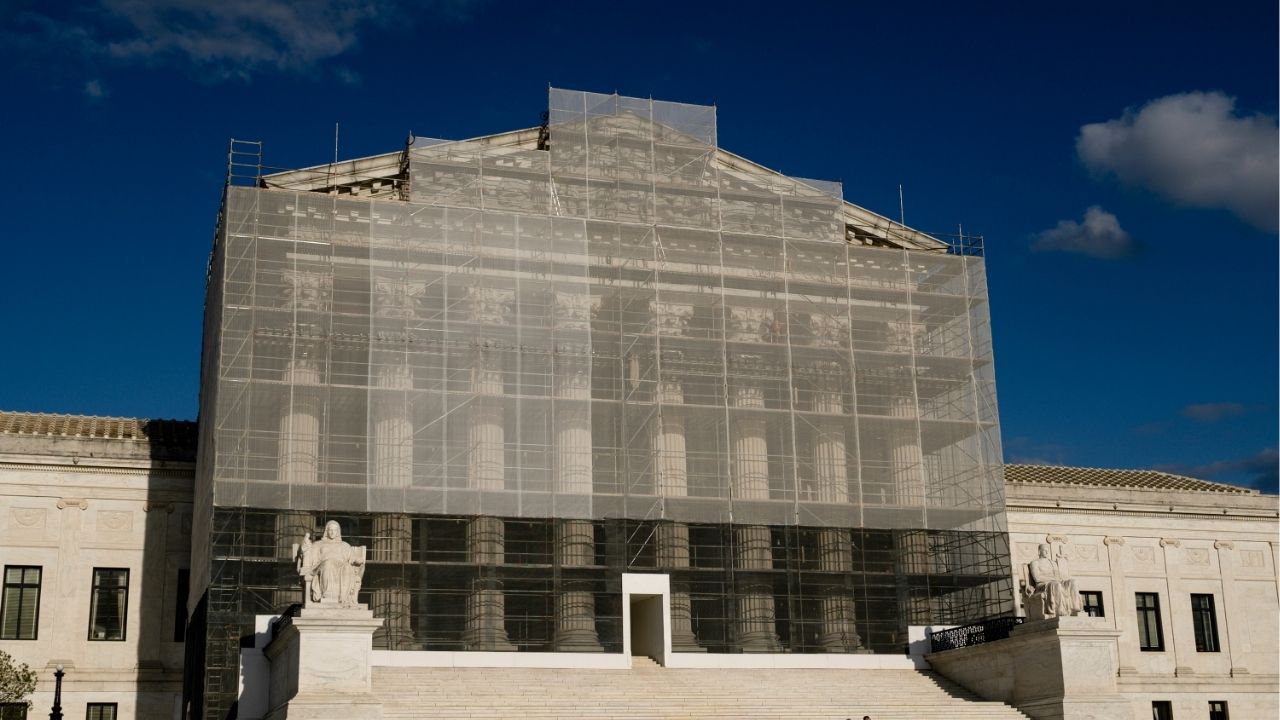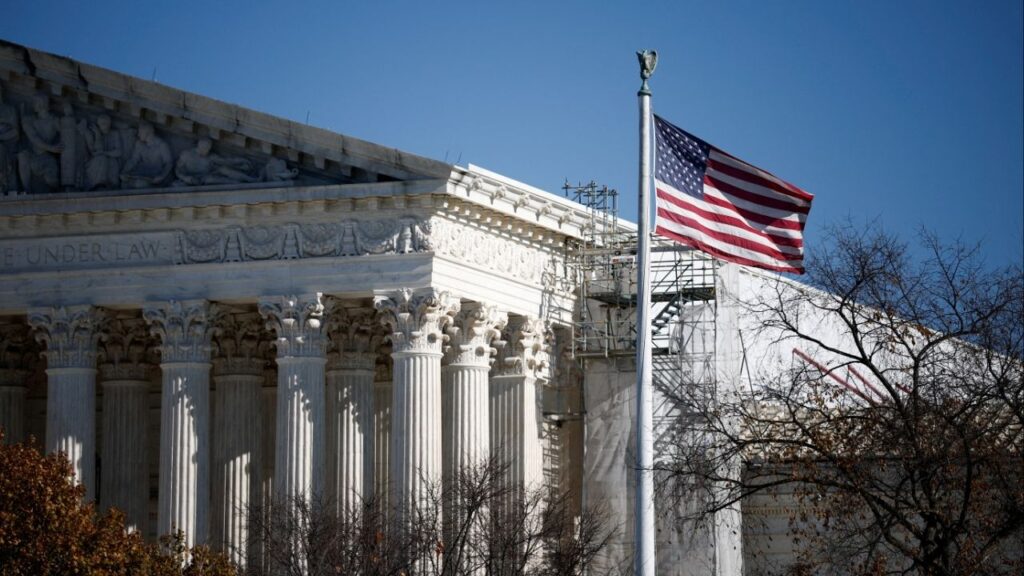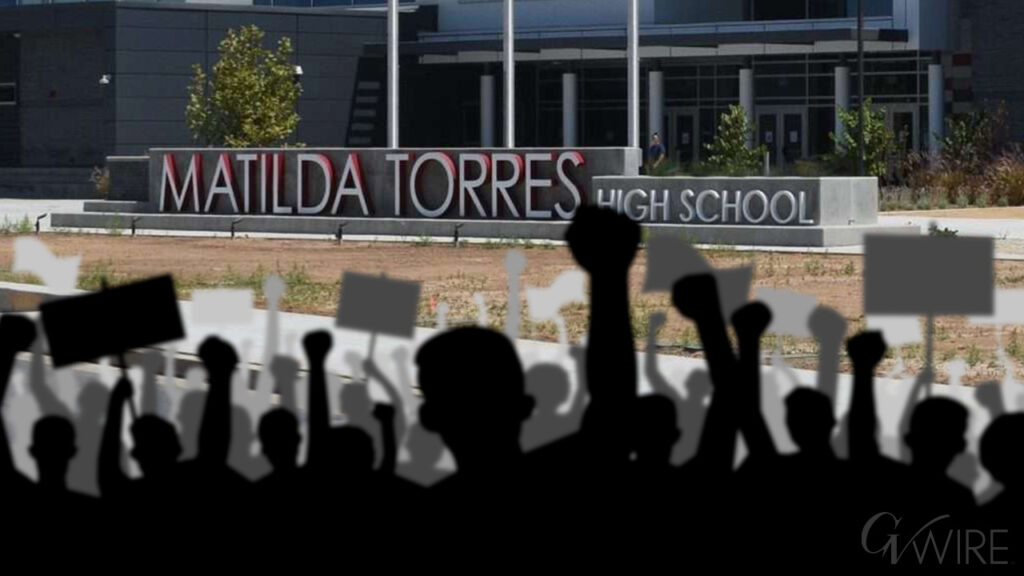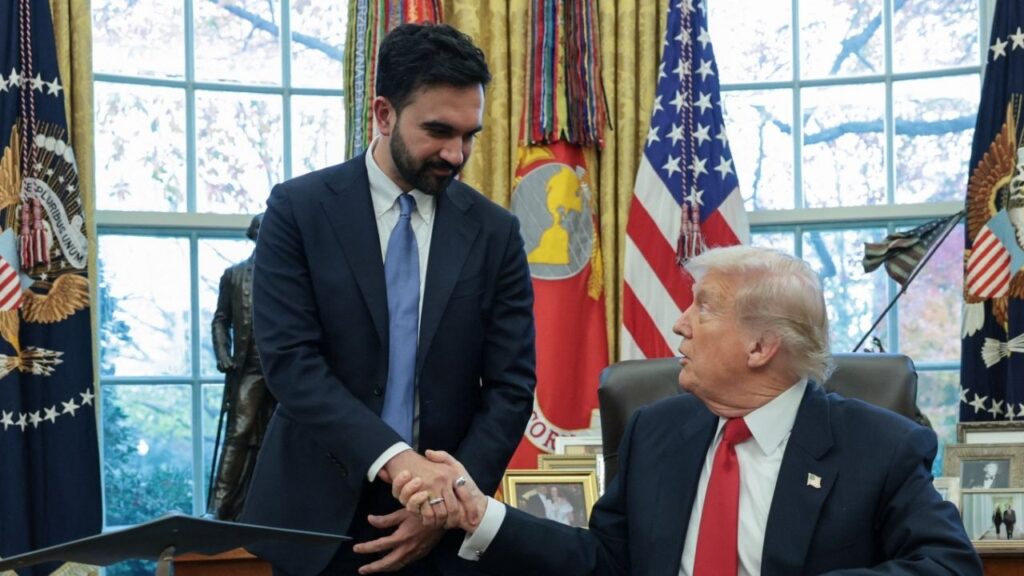The U.S. Supreme Court in Washington, Sept. 9, 2025. The Trump administration on Friday asked the Supreme Court to uphold President Trump’s executive order ending birthright citizenship, the long-held principle that children born on American soil are automatically citizens.(Tierney L. Cross/The New York Times)
Share
|
Getting your Trinity Audio player ready...
|
WASHINGTON — The Trump administration on Friday asked the Supreme Court to uphold President Donald Trump’s executive order ending birthright citizenship, the long-held principle that children born on American soil are automatically citizens.
Trump issued the order on his first day in office, but it has been blocked by the courts ever since.
In a pair of petitions, government lawyers argued that the Constitution’s promise of citizenship was conferred on “freed slaves and their children, not on the children of aliens temporarily visiting the United States or of illegal aliens.”
The common understanding of the 14th Amendment for more than a century, upheld by the Supreme Court, has guaranteed citizenship to children born in the United States. But D. John Sauer, the solicitor general, argued that such a view was “mistaken,” according to the filings, which were reviewed by The New York Times but have not yet appeared in the court’s public case-tracking system.
If the justices were to take the case, the court could hear arguments on the matter during its upcoming term, which is set to begin in early October. Decisions are typically announced by late June or early July.
The Justice Department did not immediately respond to a request for comment.
The administration’s request set up a key test for the Supreme Court, which has repeatedly allowed central pieces of Trump’s agenda to proceed on a temporary emergency basis, even as their legality is tested by the courts. If the justices accept the birthright citizenship cases, they would offer a final verdict as to whether Trump’s order was constitutional, a case that could define what it means to be an American.
“If and when the court takes up birthright citizenship, the president will be going against the U.S. Constitution, a 127-year-old Supreme Court precedent and an act of Congress, and he will lose,” said Cecillia Wang, the national legal director of the American Civil Liberties Union, which is among the groups challenging the executive order.
The Trump administration appeals stem from lower court litigation over an executive order signed by Trump when he returned to office in January. The order, which would end birthright citizenship for the children of immigrants without permanent legal status and temporary foreign residents, faced immediate legal challenges.
Trump Order Collides With 14th Amendment Understanding
Trump’s order appeared to collide with the common understanding of the 14th Amendment, which was ratified after the Civil War to guarantee citizenship for all and reversed a now-notorious court decision that had deprived Black people born in the United States of that right. The amendment states that “all persons born or naturalized in the United States, and subject to the jurisdiction thereof” are Americans.
After a number of federal judges issued temporary pauses on the policy as the court cases made their way through the system, the Trump administration asked the justices to unfreeze the policy, arguing that lower court judges had exceeded their power by issuing the nationwide blocks.
The justices, in a rare move, heard oral arguments in May on the narrow question of whether lower court judges had exceeded their authority. In late June, in a 6-3 decision that split along ideological lines, the justices sided with the Trump administration, cutting off one mechanism for lower-court judges to block executive branch policies.
More legal challenges swiftly followed in response to the Supreme Court ruling, including a nationwide class-action lawsuit filed in federal court in New Hampshire on behalf of a proposed class of people, including babies subject to the executive order and their parents.
In July, Judge Joseph N. Laplante of the U.S. District Court for the District of New Hampshire agreed to allow the lawsuit to proceed, freezing the policy for the babies and their parents. He announced that his decision applied nationwide.
That same month, in a splintered decision, a panel of judges on the San Francisco-based 9th U.S. Circuit Court of Appeals ruled in an ongoing Washington state case that the president’s executive order violated the Constitution.
In that opinion, the judges concluded that the order “contradicts the plain language of the 14th Amendment’s grant of citizenship to ‘all persons born in the United States and subject to the jurisdiction thereof.’”
In his new filings, Sauer argued that the lower-court decisions had invalidated policies necessary to secure the border and conferred citizenship on hundreds of thousands of “unqualified people.”
—
This article originally appeared in The New York Times.
By Abbie VanSickle/Tierney L. Cross
c. 2025 The New York Times Company
RELATED TOPICS:
Categories
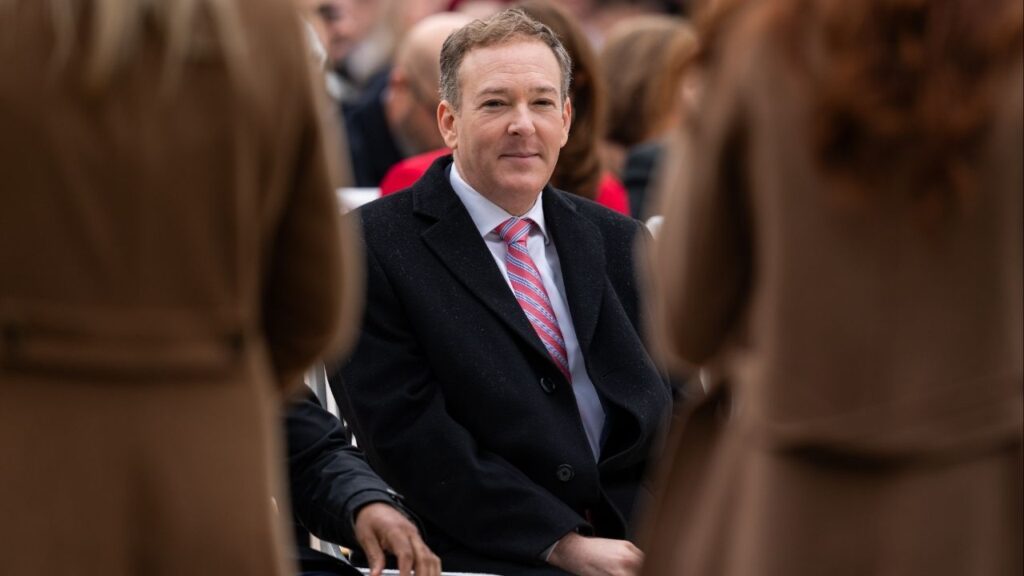
MAHA Activists Urge Trump to Fire His EPA Administrator

Meta Strikes Multiple AI Deals With News Publishers



